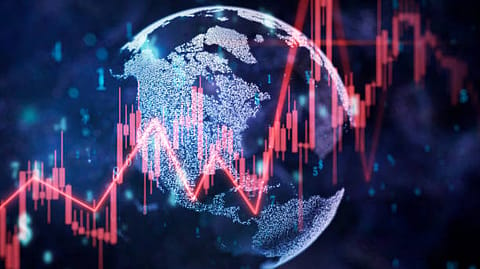Globalisation at record high in 2022, to accelerate in 2024: DHL
The 2024 edition is based on nine million data points. It ranks connectedness of 181 countries, accounting for 99.7% of the world's gross domestic product and 98.7% of population.

Globalisation reached a record high in 2022, remained close to that level in 2023, and is expected to accelerate in 2024, the latest edition of DHL Global Connectedness Report 2024 suggests.
The report tracks flow of trade, capital, information, and people around the world and measures the globalisation of 181 countries and territories. India ranks 62nd in the DHL Global Connectedness Index with Singapore achieving the number one spot. The Netherlands and Ireland rank second and third.
The annual report, commissioned by global logistics major DHL and New York University’s Stern School of Business, states the findings of the report strongly rebuts the notion that the growth of global flows has gone into reverse.
Corporate globalisation is rising, with companies expanding their international presence and earning more sales abroad, the report says. It points out that globalisation of information flows has been especially strong over the past two decades, even though the latest data show a stalling of growth, partly due to low research collaboration between the U.S. and China.
The 2024 edition is based on almost nine million data points. It ranks the connectedness of 181 countries, accounting for 99.7% of the world's gross domestic product and 98.7% of its population. While 143 countries became more globally connected, only 38 saw their levels of connectedness decline. Europe is the world’s most globally connected region, followed by North America and the Middle East & North Africa, the report says.
"De-globalisation is still only a risk, not a current reality," says Steven Altman, Senior Research Scholar and Director of the DHL Initiative on Globalisation at NYU Stern’s Center for the Future of Management. "Geopolitical threats and public policy shifts have led many to predict a fracturing of the world economy along geographic or geopolitical lines, or even a retreat from international to domestic business. But the latest data still show that international flows are growing and very few countries are cutting ties with their traditional counterparts. It is important to recognise the resilience of global flows because a lopsided focus on the threats to globalization could make de-globalisation a self-fulfilling prophecy," he explains.
The talks about de-globalisation gathered strength in recent years due to a series of global shocks over the past decade, including the Covid-19 pandemic, wars in Ukraine and Gaza, the U.S. – China trade conflict, and the UK's withdrawal from the EU.
"The most recent findings of the DHL Global Connectedness Report unequivocally dispel the notion of globalisation reversing course. Far from being a mere buzzword, globalisation is an influential force that has profoundly reshaped our world and has further great potential. Expanding markets and fostering opportunities empower individuals, businesses, and entire nations to flourish in unique ways," John Pearson, CEO DHL Express, said.